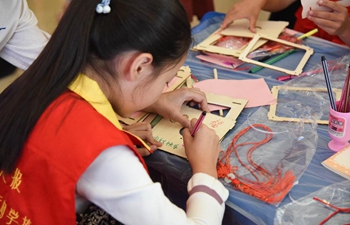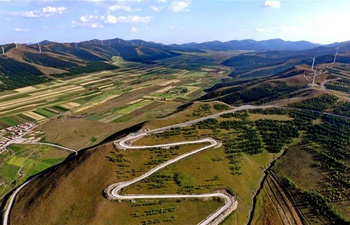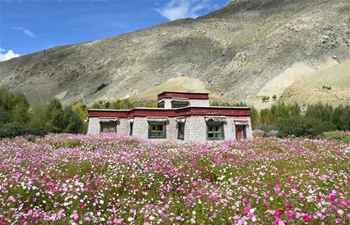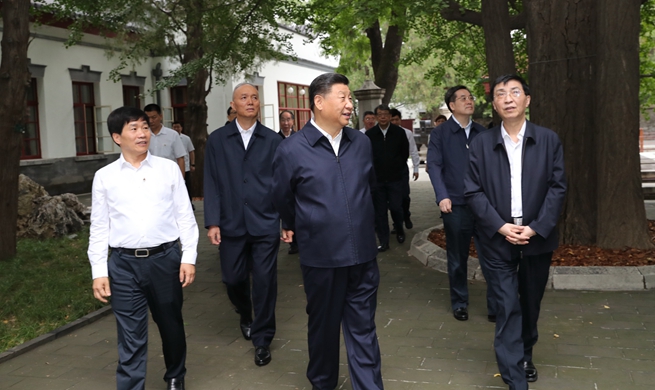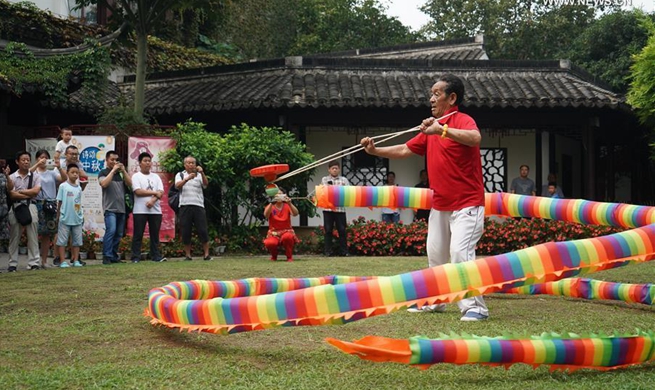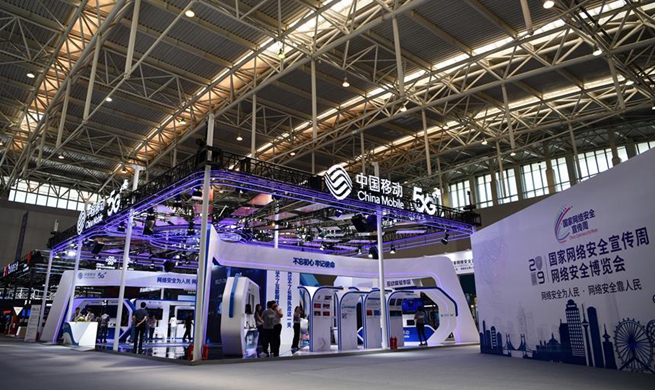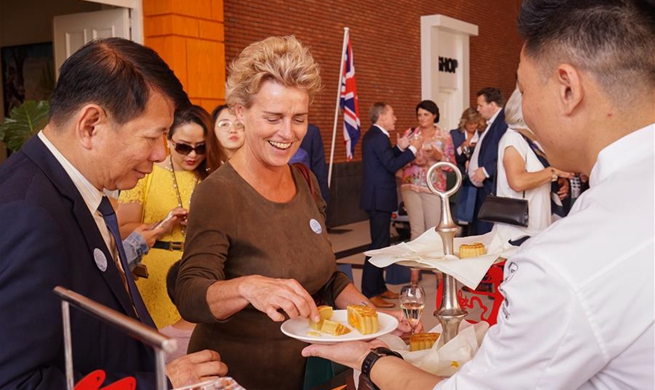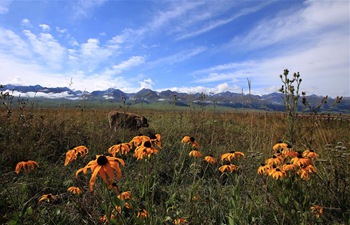ISTANBUL, Sept. 14 (Xinhua) -- Turkey would be given the go-ahead to establish a safe zone in Syria's Idlib province to stem a fresh wave of refugees in the upcoming summit on Syria, but would also be forced to accept the seizure of the rebel-held province by the Syrian army, analysts told Xinhua.
Turkey's Astana partners would provide a "face-saving formula" for Ankara at the summit in the shape of a safe zone in Idlib, said Haldun Solmazturk, a former general in the Turkish military.
On Monday, Turkish President Recep Tayyip Erdogan will host his Russian and Iranian counterparts in Ankara for a summit on war-torn Syria, in particular on the situation in Idlib.
The Russia-backed Syrian army captured several towns and dozens of villages from the jihadist rebels in a major offensive last month, sending tens of thousands of more Syrians fleeing to the Turkish border.
Erdogan said last week that Ankara would be much happy if a safe zone could be established in Idlib, underlining Turkey cannot tolerate a fresh wave of migrants.
Russia and Iran may well agree to Turkey's setting up of a safe zone along its border in Syria, said Hasan Koni, an international relations analyst.
A de-escalation zone established a year ago to end the clashes between the Syrian army and the rebels in Idlib did not work, as Turkey failed to block the rebels from attacking Russian and Syrian army positions.
"We attach importance to the maintenance of the status of the de-escalation zone in Idlib," Erdogan said in a televised interview on Friday evening, underlining that Ankara plans no withdrawal of troops from the observation posts in Idlib.
Under the de-escalation zone deal concluded with Russia in September last year, Turkey established 12 military observation posts around Idlib to monitor truce, but has failed to stop rebel attacks on Russian and Syrian army positions.
During the interview, the Turkish president listed Ankara's expectations from the leaders' summit as a long-lasting ceasefire, end of the migration from Idlib and taking the terrorist organizations in the province under control.
However, both analysts think the Syrian army would move to clear the Idlib province of the rebels after Ankara's preparations for the safe zone are complete.
"Ankara would have to withdraw its troops at the observation posts into the safe zone following the summit," maintained Solmazturk, who considers a safe withdrawal of the troops part of the "face-saving formula" for Ankara.
"Damascus would allow those rebels who would lay down arms to come back, while those who would continue to fight would be eliminated," stated Koni, who teaches at Istanbul Kultur University.
Despite Ankara's protests, Russian jets and the Syrian army have pounded Idlib several times since early this week.
The Idlib province, the last rebel bastion in Syria, is estimated to have around three million residents.
Acting as a patron of some rebels in Idlib based on a deal it concluded in 2017 with Moscow and Tehran in the Kazakh capital of Astana, Ankara has so far argued for a political settlement of the Idlib issue.
Yuri Ushakov, Russian President Vladimir Putin's top foreign policy aide, said on Friday that the Idlib issue, the situation in the Kurdish militia-held area in eastern Syria and the formation of a constitutional committee will dominate the Ankara summit.
"Ankara is in no position, politically or militarily, to control the developments on the ground," said Solmazturk, who chairs the Incek debates at the Ankara-based 21st Century Turkey Institute.
"This summit, following which a picture of post-war Syria will essentially emerge, represents a turning point in the Syrian civil war," he added.
Turkey has close ties with some of the so-called moderate rebels in Idlib, around 90 percent of which is now controlled by the al-Qaeda-linked Hayat Tahrir al-Sham.
The Turkish government needs a story for its supporters at home to accept the troops' withdrawal and the expected huge wave of refugees, remarked Solmazturk.
There is growing dissatisfaction in Turkey about the Syrian refugees as the economy is gripped by recession, rising unemployment and prices.
Solmazturk claimed that the withdrawal of the Turkish troops would be carried out in cooperation with the Syrian government to avoid any potential mishaps as much as possible, but it would not be made public.
Despite cooperation with Russia and Iran, staunch supporters of the Syrian government, Ankara has refused until now to have political dialogue with Damascus, arguing it has lost legitimacy by killing its own people.
Since late August, Turkey's southernmost observation post in Idlib has been surrounded by the Syrian army, while another one a bit further to the north also reportedly risks being besieged by the advancing Syrian forces.
More than one million Syrians who fled the fighting in Idlib currently live near the Turkish border, while Turkey is officially hosting over 3.6 million Syrians on its land.
Ankara is also concerned that some rebels disguised as civilians may attempt to infiltrate into Turkey with another wave of refugees.
Neither of the analysts thinks the M4 highway, which passes through the north of the Idlib province linking Aleppo with Latakia, would be left to the control of the Turkish army.
Other than the safe-zone area, which could be at most 10-15-km deep inside Syria from the Turkish border, the Syrian army would take control of all the remaining territory, Solmazturk said.
In remarks published on Friday, Russian Foreign Minister Sergey Lavrov said the Syrian war has essentially ended, with just some hotspots remaining such as Idlib and the Kurdish militia-held eastern Syria.
"We're nearing the final scene in Idlib," remarked Koni.
Erdogan has several times threatened in the past week that Ankara would have to open the gates for Syrian refugees to leave for Europe unless Western countries increase their financial aid for Syrians in Turkey and support Ankara's safe zone plans.
He said Ankara could relocate one million Syrian refugees in safe zones along its border in Idlib and the Kurdish militia-held area in northeastern Syria.





